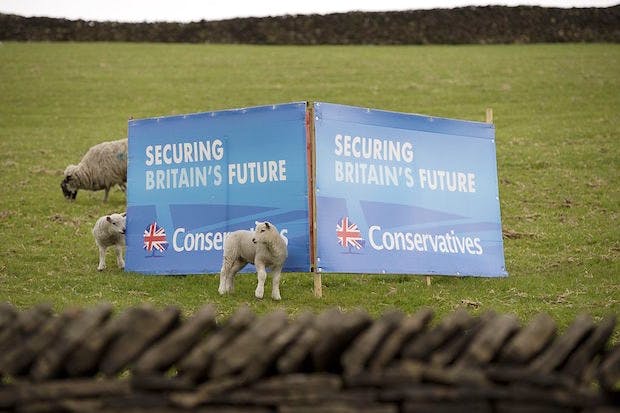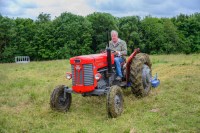Traditionally, the Tory party have always had the support of the countryside. The hunting, shooting and fishing fraternity were solid Conservative stock – and if anyone really drove the final nail into the coffin of Labour rural vote, it was Tony Blair. The early noughties saw numerous marches through central London protesting not just about the proposed ban on hunting, but on Labour’s perceived attack on rural Britain. In fact the Countryside Alliance was formed from an amalgamation of the British Field Sports Society, the Countryside Business Group, and the Countryside Movement almost as a direct response to New Labour’s landslide victory in the 1997 General Election.
But the question now is whether the Tories are resting on their laurels where rural voters are concerned, and simply taking their votes for granted. Today saw the launch of a joint report between the Fabian Society and the Countryside Alliance, which aims to address how Labour can try to win over rural voters.
It’s true that there are some Countryside Alliance campaigns that the Labour Party are never going to get behind; after all, their recent Animal Welfare plan included plans to ‘ban the intensive rearing of game birds for shooting’, and to ‘enhance and strengthen the Hunting Act’. But, as Theresa May discovered to her disadvantage when she spoke out about foxhunting during last year’s election campaign, field sports are not the number one priority of most people living in rural communities.
Post offices, pubs and bank branches are closing; super-fast broadband has been promised, but never seems to quite do the job, and transport links are few and far between. There is also chronic deprivation in certain areas, as well as concerns over rural housing. But Defra minister Michael Gove seems to have forgotten that as well as having responsibility for farming and the environment, the ‘rural affairs’ part of his brief includes rural communities. Gove’s performance has been so focused on the ‘E’ and the ‘F’ of Defra that last week the House of Lords recommended that Defra be stripped of its responsibility for rural communities, with Lord Cameron of Dillington arguing that ‘Defra seems to regularly ignore the needs of 93 per cent of its constituents’.
Is it any wonder that Labour are now wondering how they can, as the report puts it, ‘rebuild the connection with rural voters’? ‘The most totemic issue for the Labour party, as far as the countryside goes, has been hunting and animal welfare issues. Our view was that Labour were spending lots of time talking about animal rights and pandering to an urban view, but not talking about issues like housing, transport, connectivity – things that actually matter to rural people’, explains Liam Stokes of the Countryside Alliance, who has been working with the Fabians on the report. ‘The countryside is very poorly served by being represented by one party, with only 32 rural seats in the hands of Labour. When you have this democratic deficit you end up in a situation where rural issues don’t matter. It’s a classic case of: “Who else are they going to vote for?”.’
Of course the Countryside Alliance and the Labour Party aren’t going to agree on everything. If Labour do up their game in trying to attract rural voters though, that might well encourage the Tories to do the same, which would only serve to benefit those who actually live in the countryside. Tobias Phibbs of the Fabian Society, who wrote the report, clarified things. ‘The phrase we are using is that Labour should become ‘a’ natural party of the countryside, not ‘the’ natural party of the countryside. It’s not that Labour has to win every seat in the country; it’s not going to.’
There might well be some backlash; Stokes told me that on social media many of their members had already been wondering about the logic of this pairing. ‘Some people have been saying, “Why are you helping the Labour Party? This is the party that harmed our livelihoods.” The feeling was sort of, why are you even bothering to talk to them? They don’t like us.’ But data published in the report, from a YouGov/Fabian poll in November, showed that 11 per cent of rural voters who voted Conservative in the last election felt that the Conservatives don’t share many or any of their values, and 24 per cent believe that the Conservatives don’t understand people in their area very well, or at all. There’s certainly a space for Labour to make their move on the countryside – and it could be a game-changer for rural communities.







Comments